This article discusses all you need to know about Canada study permit refusal – purpose of visit and other Canada student visa rejection reasons.
We’ll discuss what led to Canada’s stringent student visa laws, the common reasons for Canada study permit refusal purpose of visit, and how you can avoid them. Then, we’ll go on to break down the steps you can take if your study permit gets refused.
Basically, this post prepares you for whatever situation might come up in your Canada student visa application. Read on!
- What Does "Canada Study Permit Refusal – Purpose of Visit" Mean?
- Reasons for Canada’s Stringent Student Visa Laws
- Canada Study Permit Refusal – Purpose of Visit & Popular Student Visa Rejection Reasons
- 1. Questionable Letter of Acceptance
- 2. Your Choice of Program
- 3. Canada's Official Language Proficiency (English/French)
- 4. Inadequate Identity or Travel Documents (including Lack of Travel History)
- 5. Lack of Sufficient Funds
- 6. Intent to Return to Your Home Country
- 7. Low Employment Prospects in Your Home Country
- 8. Other Reasons for Canada Study Permit Refusal
- Valuable Success Strategies to Decrease the Chances of Canada Study Permit (Visa) Refusal
- What Should You Do After Canada Study Permit Refusal?
- The Top 3 Options for a Study Permit Applicant After a Rejected Visa Application
- What Changes Should You Make after Getting a Canada Study Permit Refusal?
- "Canada Study Permit Refusal – Purpose of Visit"; versus Work and Visitors Visa Refusal
- What Happens Once Your Study Permit is Approved?
- FAQs on Canada Study Permit Refusal Purpose of Visit and Common Canada Student Visa Rejection Reasons
- Final Thoughts on "Canada Study Permit Refusal – Purpose of Visit" and Common Canada Student Visa Rejection Reasons
- What Next?
After being accepted to your dream educational institution (College/University) in Canada, the next thing you will need to do as an international student is to apply for a Canada study permit. The study permit is a non-immigrant visa.
Unfortunately, it is common for a study permit to be refused for an international student and you may face a “Canada study permit refusal – purpose of visit” as the reason for the visa refusal. The good thing is you can avoid this, and if it has happened already, you can fix it.
We’ve dissected the common reasons for the Canadian study permit in this guide and how you can avoid or fix them. So, let’s get right into it.
What Does “Canada Study Permit Refusal – Purpose of Visit” Mean?
To many, this term may be vague. The officer may not be convinced that your intentions of applying for a temporary visa to study in Canada are genuine or truthful. The course you choose and the duration you wish to study in Canada plays a significant role in study permit applications.
The visa officer assessing your application will do it under Section 16 (1) of the Immigration and Refugee Protection Act. This section states: “A person who makes an application must answer truthfully all questions put to them for examination and must produce a visa and all relevant evidence and documents that the officer reasonably requires.”
So, if you have omitted any information or evidentiary documents, the officer may not approve your study permit application. Therefore, if your goal is to enter Canada primarily to work and remain there, do not take any chances to apply for a study permit.
The visa officer has to be satisfied that you are a legitimate student with a truthful purpose for study. The IRCC visa officer handling your case may also not be sure that you have enough financial resources to cover your tuition, travel, and living cost in Canada and that you are not inadmissible to Canada.
Subsection 216 (1) of the IRPR
This section means the visa officer is not convinced that you will leave Canada after your program of study in Canada.
216 (1) Subject to subsections (2) and (3) states: An officer shall issue a study permit to a foreign national if, after an examination, it established that:
(a) The foreign national applied for it in accordance with this Part;
(b) The foreign national will leave Canada at the end of the authorized period for their stay under Division 2 of Part 9;
(c) The foreign national meets the requirements of this Part;
(d) The foreign national meets the requirements of subsections 30(2) and (3), if they must submit to a medical examination under paragraph 16(2)(b) of the Act; and
(e) The foreign national has been accepted to undertake a program of study at a designated learning institution (DLI).
Reasons for Canada’s Stringent Student Visa Laws
A study permit and an entry visa is compulsory for international students who wish to study in Canada. After gaining admission into a DLI (Designated Learning Institution), the next step is to apply for and obtain your Canadian student visa/study permit.
As of 31st December 2019, the IRCC (Immigration, Refugees, and Citizenship Canada) calculated the number of international students with a Canadian student visa to be approximately 640,000. This number increases every year.
The increase in Canada study visa applications has led to a surplus of Canadian student visa rejections. According to IRCC, an average of 30% of Canada’s total student visa applications get rejected every year.
The Canadian government has laid out strict student visa laws. The primary reasons for this decision to follow a rigid format and reject study permit applications at the slightest doubt were:
- Rising fraudulent cases has resulted in stricter laws.
- About 10% dubious cases were registered between February 2018 to November 2018.
- The rise in rejection rate observed from 2012 to 2018.
There was a sharp increase in the Canadian student visa rejection rate during the first five months of 2019. Four out of every ten Canadian student visa applications were rejected. This number accounts for around 39% of the total applications.
Students who applied to study for their bachelor’s suffered the most rejection while those who applied for their doctorate (PhD) suffered the lowest.
Statistics for Canadian Student Visa Rejection Rate
| Applicant Type | Percentage of Applications Rejected |
| Universities | 43 % |
| Colleges | 43 % |
| Bachelors | 54 % |
| Masters | 32 % |
| Doctorate | 12 % |
| Overall/Average | 39 % |
Canada Study Permit Refusal – Purpose of Visit & Popular Student Visa Rejection Reasons
After fulfilling all the minimum criteria for admissions, most international students naturally feel optimistic about the decision. However, even when the applicant has fulfilled all the institution’s academic and entry requirements, he/she may still not get his/her study permit.
We’ve listed some of the popular reasons for rejection of study permit by the IRCC below:
1. Questionable Letter of Acceptance
You need a letter of acceptance from a Canadian DLI (Designated Learning Institution) to apply for a study permit. If your acceptance letter is in question, the immigration officer may reject your Canadian study visa.
Apart from the letter of acceptance, you also have to meet the minimum admission requirements for the particular institution. If the immigration officer doubts whether you meet these requirements, s/he may also reject your study permit.
Certificat d’acceptation du Québec:
If you will be studying at a school in Quebec, a certificat d’acceptation du Québec (CAQ) is required, which is issued by the Gouvernement du Québec. Your educational institution can give you all the information on how to apply for the CAQ.
If your application for a CAQ gets approved by the ministère de l’Immigration, de la Francisation et de l’Intégration (MIFI), but you’re still waiting to get the CAQ, you can apply for your study permit with the approval letter from the MIFI. You are not required to wait for the CAQ to apply for your study permit. Find out what you need for studying in Quebec.
How to Avoid:
You can prevent this problem by ensuring your acceptance letter comes from a registered educational institution in Canada. Attach sufficient documents to prove that you possess the minimum admission requirements, and if possible, attach additional supporting documents.
Also, if you will be studying at a school in Quebec, make sure you receive an approval letter from the MIFI before applying for your study permit.
2. Your Choice of Program
If the immigration officer questions your choice of program, your Canadian student visa and study permit might get rejected.
In situations where your chosen program does not align with your academic or employment background, then your chances of getting rejected are even higher.
In addition, if you apply to a program that you seem overqualified for, you may receive a refusal. For example, you already have a Masters degree from outside Canada and you subsequently get a letter of acceptance from a Canadian educational institution for a Post Graduate Certificate/Diploma (PGD) program in Canada. In this example, there is a high chance that your Canada study permit will be refused because your new program does not show academic progression.
Letter of Explanation (LOE):
The LOE helps the visa officer to understand you and your goals to study in Canada. It justifies:
- why you want to study in Canada, and
- that you know your obligations as a student.
How to Avoid:
You can address this issue by including a detailed personal statement (also referred to as an SOP letter) for your choice of program if it does not align with your past education or work experience.
On the other hand, if your choice aligns with your previous background, you can attach a detailed education or work history along with your applications.
You should include a letter of explanation when you apply for a study permit.
3. Canada’s Official Language Proficiency (English/French)
If you are a non-native English speaking international student, you should submit proof of language proficiency as part of your Canada study permit application package.
Similarly, if you will be studying at a school in Canada where the language of instruction is French, you either need to be a native French speaker or provide evidence of French language proficiency with your Canada student visa application.
You have to meet the minimum standardized English language test (TOEFL/IELTS) scores when applying through SDS (Student Direct Stream) or SPP program. Adequate preparation is key. So, get one of the best IELTS preparation books to ensure that you get the highest score possible in your IELTS exam.
Even if you have the minimum score and meet the DLI ELP requirements, failing to meet the program requirements may lead to your student visa getting rejected.
How to Avoid:
Make sure that you meet the minimum language score requirements for your specific program of study in Canada to avoid getting a Canada study permit refusal.
Also, before applying for your Canada study permit, familiarize yourself with the standard language test scores requirements for studying in Canada.
4. Inadequate Identity or Travel Documents (including Lack of Travel History)
Your study permit may be rejected if you do not have previous travel history outside your country of origin. Keep in mind that this is a subjective reason and not an objective one. However, study permit applicants from some countries (especially third-world and less developed countries) have gotten their study permit refused for this reason.
If you receive a Canada study permit refusal for lack of travel history, we recommend that you first order your GCMS Notes from IRCC, and then re-apply based on what is indicated in your GCMS Notes.
Wondering what a Canada GCMS Notes is? Check out our GCMS Notes Ultimate Guide.
Also, if you indicated in your study permit application form that you have previous travel history but the travel documents you provide (such as your previous passport with visas or stamps of entry and exit from the countries you visited) does not cover those periods, it could lead to a refusal as you did not provide adequate evidence to substantiate your travel history.
The chances of your study permit getting rejected are even higher if your identity documents are incomplete or uneasy to read. The onus is on you to submit adequate travel documents.
How to Avoid:
It would be best if you justify your travel history with sufficient proof and documents. Your identity documents must be straightforward and easy to read. For online applications, make sure that you arrange your scanned documents in chronological order to make it easy for the IRCC officer to make sense of it.
5. Lack of Sufficient Funds
The minimum financial requirement you need to study in Canada is proof of adequate funds for the first year of your course/program – for yourself and any family members who will come with you to Canada. This shows that you have adequate financial resources for your studies in Canada and also indicates that you are financially stable.
The tables below show the minimum funds needed to support yourself as a student and any member of your family who will accompany you to Canada:
All Provinces in Canada (except Quebec)
| Persons coming to Canada | Minimum funds required per year (this does not include tuition) | Minimum funds required per month (this does not include tuition) |
| You (the student) | $10,000 CAD | $833 CAD |
| First family member | $4,000 CAD | $333 CAD |
| Every additional family member who come with you to Canada | $3,000 CAD | $255 CAD |
For instance:
If the school in Canada that you intend to study at is located in a province outside Quebec. Say your tuition fee for one year is $19,000 CAD and you and 3 of your family members will accompany you to Canada (e.g. yourself plus your spouse and 2 children), you will need to provide financial proof for at least a total of $39,000 CAD. See the breakdown below:
- Your tuition fee for one year: $19,000 CAD +
- Living expenses: $10,000 (for you – the student) +
- Living expenses: $4,000 (for the first family member) +
- Living expenses: $3,000 (for the second family member) +
- Living expenses: $3,000 (for the second family member).
In Quebec
| Persons coming to Canada | Minimum funds required per year (this does not include tuition) | Minimum funds required per month (this does not include tuition) |
|---|---|---|
| You (the student) | $11,000 CAD | $917 CAD |
| First family member (18 years or older) | $5,100 CAD | $425 CAD |
| First family member (under the age of 18) | $3,800 CAD | $317 CAD |
| Every additional accompanying family member (18 years or older) | $5,125 CAD | $427 CAD |
| Every additional accompanying family member (under the age of 18) | $1,903 CAD | $159 CAD |
Thus, if the IRCC immigration officer suspects a sign of insufficient funds, he/she may reject your study permit application. Also, if your home country uses FX (Foreign Exchange) controls to limit the amount of money that can be transferred to a foreign country (such as canada), you must prove that you’ll be permitted to transfer funds for all of your expenses during your period of study in Canada.
How to Avoid:
You can treat this potential problem by ensuring that you do not merely focus on providing evidence for the minimum required fund. Instead, it is recommended that you include evidence of sufficient finances for more than a year and additional documents that support your finances in your Canada study permit application.
Find out the cost of studying in Canada. Then, plan your expenses in line so that you can completely cover your grounds.
6. Intent to Return to Your Home Country
Canada study permit is a temporary visa and therefore has a specific validity period. So, you have to submit enough evidence to prove your intent to return to your home country after your studies in Canada.
This does not mean you cannot request an extension of your study permit or change your immigration status in Canada (such as obtaining Canadian Permanent Residency – PR – through the Canadian Experience Class). However, it is important that when you apply for a Canada study permit from outside Canada that you provide documentation that supports your intention of returning to your home country after your studies in Canada.
The reason is to make sure you will not remain in Canada after your study permit expires, especially in situations where there are no available opportunities for you to legitimately remain in Canada.
How to Avoid:
You can address this concern by providing a detailed personal statement. When addressing this concern in your statement, you should also understand the dual intent concept.
Dual intent accounts for applicants who initially want to visit Canada temporarily (on a study or work visa) and intend to become permanent residents of Canada later.
7. Low Employment Prospects in Your Home Country
A lack of job prospects in an applicant’s home country is typically used as a benchmark in assessing the applicant’s intention to return home.
The IRCC visa officer may conclude that you intend to settle in Canada, if any of the following applies at the time of your Canada study permit application:
- If you are not employed, or
- If you have been unemployed for an extended period of time in your country of residence, or
- If it does not appear that you have employment prospects in your home country after completing your studies in Canada,
Any of the above situations may lead to a rejection of your Canadian study permit (student visa).
How to Avoid:
Present proof of your current employment status. If possible, also include documents and statements that suggest that there are enough employment opportunities in your home country after you complete your studies in Canada.
If possible, ask your current employer to provide you with a letter that indicates that they have approved a study leave for you; and that you resume your job in your home country after you complete your studies in Canada.
8. Other Reasons for Canada Study Permit Refusal
- The applicant’s failure to meet international security standards, for instance, if the applicant has a criminal record.
- Misrepresentation: If you have previously presented false information to Canada immigration and have been banned.
- If you have been previously deported for overstaying in any other country.
- Human Rights Violations: If you have previously served in the military for a country deemed to have engaged in war crimes. You can overcome this inadmissibility by providing additional documents.
- Medical Inadmissibility: The applicant’s failure to meet up with Canadian health standards. For example, if you have a contagious disease that is a threat to Canadians. Keep in mind that as part of the Canada study permit application process, IRCC will ask you to undergo a medical examination.
Other factors could lead to a Canadian visa refusal or a study permit rejection, but most of them fall within the parameters mentioned above. If the Canada visa officer refuses your Canada study permit application, you may appeal the refusal or reapply for the visa.
The new application may pass through another visa officer who may have a different opinion about the documents you provided previously.
The best option is typically for you to re-apply with an improved visa application package.
To ensure that you address any red flags in your previous application, you should first Order Your GCMS Notes Online from IRCC, Canada.
Valuable Success Strategies to Decrease the Chances of Canada Study Permit (Visa) Refusal
Now that we’ve discussed some of the common reasons for Canadian study visa refusal, it’s important to point out that the rejection letter holds some clues about why your application was rejected. Read the letter carefully and note any information you can use later to strengthen your reapplication case.
Next, get access to the notes made by the Canada visa officer while reviewing your application by requesting for your GCMS notes from IRCC. Canada GCMS notes typically has more information than what is written in your visa refusal letter. It is recommended that you obtain your GCMS notes from IRCC before re-applying for a Canada study permit.
Wondering what a Canada GCMS Notes is? Check out our GCMS Notes Ultimate Guide.
What if you can prevent the visa refusal from happening at all? Let’s discuss a few valuable strategies that could help you avoid a visa refusal in the first place:
- Make a list of required documents you need to submit to obtain a Canada study visa. A good starting point is to use the document checklist that is available on the Government of Canada’s official website.
- Carefully complete the visa application forms and make sure you leave no section blank. If something does not apply to you, just write “N/A”.
- For online applications, make sure you upload a copy of the letter of acceptance you received from the Designated Learning Institution (DLI) in Canada. Keep in mind that all primary and secondary schools in Canada are DLI’s, but not all post-secondary educational institutions in Canada are DLIs.
Thus, as an international student intending to study in Canada, if you submit a letter of acceptance from a college or university in Canada that is not a DLI, your study permit application will be refused.
- If you are applying under SPP, you must be able to show evidence of finances. If possible, you should obtain a Guaranteed Investment Certificate (GIC) by transferring at least $10,200 CAD to a participating Canadian bank, such as RBC Royal Bank of Canada, ScotiaBank, CIBC, TD Bank, or BMO.
- If you are currently employed in your country or residence/citizenship, it is a good idea to include as proof of employment a recent letter from your employer confirming that you are currently employed, your salary payslips, or bank statements that shows regular deposit of your salary into the account.
- When applying online, make sure to answer all the questions asked on the IRCC (formerly CIC) website.
- Mention all your travel histories and visa rejections (if you have any). Not disclosing any of your previous visa rejection is considered material and will lead to a visa refusal (or even a ban) once the IRCC officers discovers that you provided false information.
- The most important write up is your Statement of Purpose (SOP) letter, also referred to as a statement of intent or letter of explanation (LOE). It introduces you to the visa officer. Mention your academic achievements and your intention to study in Canada. Remember, this statement of intent can either make or break your Canada student visa application file.
What Should You Do After Canada Study Permit Refusal?
In many cases, if you get a Canada study permit refusal, what you need to do is re-apply. However, you may proceed in any of the following three ways:
- Request a re-evaluation,
- Submit a new application, or
- Appeal against the decision at the federal court of Canada.
Although filing a judicial review/appeal is an impartial assessment, it is a burdensome process. Most students prefer just to submit a new study permit application.
In addition, before you reapply, you have to take time to figure out what could be causing red flags for the Canada immigration officer.
For instance, if you wish to bring your spouse and/or children with you on your study permit, the immigration officer may think you’re not showing enough ties to your home country.
In this instance, when you are re-submitting your application, you show that you have extended family in your home country and enough reason to move back home after you complete your program of study in Canada, or you can decide to submit a new application without your family members and use them as a tie to your home country.
The Top 3 Options for a Study Permit Applicant After a Rejected Visa Application
1. Request a Re-evaluation
This option involves requesting the immigration officer to reconsider and reevaluate the original decision. The officer is not obligated to entertain this request, which means the scope for a rejection reversal is very little with a re-evaluation request.
2. Submit a New Application [This is the Best Option for Most People]
Submitting a new application could be the ideal next step depending on the reason for your Canada study permit/visa refusal. The refusal letter from the Canada immigration officer lists the reasons for refusal but does not go into the case details.
As a wrong refusal can also become the basis for a future refusals, you want to ensure that your new application clearly rectifies the reason for which your previous application was rejected by following these logical steps:
- Carefully read the refusal letter to see the areas that the immigration officer found unsatisfactory and note down ways you can correct them.
- Seek the detailed reasons in writing through an ATIP (Access to Information and Privacy) GCMS Note Request. Officially, Canada immigration office must process these requests within 30 days, but it could take longer.
- Once you receive your GCMS notes from IRCC, follow that with an in-depth review of your GCMS notes and also review your previous visa application.
- Make the needed changes/improvements; and submit a new application.
3. Appeal to Canada’s Federal Court
You have the opportunity to appeal your refusal to the federal court formally. As an appeal is only valid within a certain period, you should act on it immediately you get a refusal. You can check with the Federal Court of Canada or the IAD (Immigration Adjudication Division).
Although this option provides better scope for impartial assessment and reversal of a refused study permit application due to a wrong interpretation of the law, it is time-consuming and expensive.
You will need to engage the services of a Canadian-based lawyer and their fees may be anywhere from $3,000 CAD to $10,000 CAD for your case. If you choose this route, it is a good idea to engage the help of a Canadian lawyer who specializes in Canada immigration/visa applications in order to increase your chances of success.
Keep in mind that unless the Canada immigration officer made an error in interpreting the law and/or fact, you may not win the case.
Also, it can take up to one year for the judge to finally hear and decide on the matter. Even then, the judge has no authority to change the decision or approve your study permit.
If you get a favourable ruling, a different Canada immigration officer will take up your application, and s/he must consider the judge’s views when deciding on your application. However, even though the new officer will not repeat the original mistake, there is no guarantee that s/he won’t unfavourably interpret another rule.
Both the Federal Judge and the Minister of Immigration, Refugees and Citizenship Canada can send the case to a different immigration officer. However, there is still very little awareness about this option, and it is difficult to access. The immigration officer makes the final decision, and this means the risk of wrong interpretation of the rules remains.
While going through all these processes, the start date for your studies in Canada at the specific educational institution will likely pass. Thus, you’ll either need to contact the school to defer your admission or you may need to submit a new admission application to the school.
If you have received several Canada study permit refusal and you think the Canada visa officer made an error in interpreting the law and/or fact; this is your best bet. However, this is often not the most effective approach for most people, and re-applying is more advisable.
What Changes Should You Make after Getting a Canada Study Permit Refusal?
Correct Your Initial Mistakes
If the reason for the Canada study permit refusal rejection is a mistake on your application, you can fix the issue by making the proper corrections. Do an appropriate check of the information you provided and present any data or supporting documentation required.
When you are doing this, ensure you have a good explanation for why you did not give this new information during your first application.
Seek Professional Help
Your immigration physical file information is essential to getting the refusal overturned or your second application approved. It helps you understand what influenced the immigration officer to believe you wouldn’t go home after your studies.
If you are unable to interpret your GCMS Notes on your own, you may engage the help of an immigration professional to help you interpret your GCMS notes to discover the factor(s) that may have caused your Canada study permit refusal.
The laws that govern Canadian visa rejection can be quite complicated. It may be in your best interest to talk to an experienced immigration expert who can give you proper advice and support for your situation.
“Canada Study Permit Refusal – Purpose of Visit”; versus Work and Visitors Visa Refusal
Work Visa
For a Canadian work permit/visa, the reasons for refusal are typically the same as the reasons for a Canadian TRV visa refusal. Although, for a Canadian work visa, there is a distinction between a refusal and a return.
A refusal will arise due to a failure to prove intent, finances, provide supporting documents, meet security, health, or criminal admissibility standards. On the other hand, a return may arise if the program quota is full or due to missing documents or wrongly filled application materials.
If the program you have applied for has reached its limit of accepted applicants, you will be unable to reapply at that time for that particular program. However, if it was returned for missing information, you can just correct these mistakes and reapply.
Visitor Visa
If your visitor’s visa application was refused, applying again with the exact information will not change the decision.
Some of the possible reasons for your visa application refusal are:
- The visa officer in charge of your case has reason to believe you will remain in Canada beyond your authorized stay.
- You’re inadmissible to Canada. In this case, the decision will not change even if you apply a second time. Reapplying will only cost you more money and cause longer processing times for other applicants. However, if your situation later changes, you may reapply again with your new information.
Some examples of situation changes are:
- You applied for criminal rehabilitation, and you were approved.
- You are now eligible for deemed rehabilitation.
- You are still inadmissible, but you are applying for a temporary resident permit.
- You were only inadmissible for medical reasons, but that situation has since changed.
Like the study visa, if you are refused a Canadian visitor visa, it will be best to follow a logical procedure of requesting your GCMS notes, reviewing the reasons for the refusal by understanding your GCMS notes, correcting all mistakes, and providing any extra information before you reapply.
If you are sure nothing was lacking on your first application and it was the visa officer’s mistake, you might be eligible to appeal.
What Happens Once Your Study Permit is Approved?
If your application to study in Canada is approved, and you are an applicant from a country that requires a Temporary Resident Visa (TRV) to enter Canada, you will need to submit your original passport (if you did not do this on the onset), for the visa counterfoil to be issued.
You may be issued multiple entries or single entry; as this is at the discretion of the visa officer and on a case-by-case basis.
Then at the port of entry in Canada, your study permit will be issued. The study permit will only be valid for a certain period, which is typically for the duration of your studies or until the expiry date of your passport, whichever comes first.
FAQs on Canada Study Permit Refusal Purpose of Visit and Common Canada Student Visa Rejection Reasons
Final Thoughts on “Canada Study Permit Refusal – Purpose of Visit” and Common Canada Student Visa Rejection Reasons
Between 2009 and 2013, almost three out of every four study permit applications were approved. Although this proportion of successful applicants was significant, a 25-27% rejection rate was recorded. This means nearly 100,000 students were denied the opportunity to study in Canada during that time period.
A Canada study permit refusal (e.g. purpose of visit) becomes a permanent blemish on your travel visa record. Therefore, it is important that you prepare and submit a ‘solid’ visa application on your first attempt. We recommend that you include a Statement of Purpose (SOP) letter to your Canada student visa application.
If your Canada study permit application is refused it may complicate future attempts to obtain any other visa in Canada or other countries (e.g. the USA, Australia, etc.) that attach importance to Canadian authorities’ visa rejection.
This does not have to be you, and you can avoid this. How?
You don’t have to spend thousands of dollars hiring an immigration consultant or lawyer. You can achieve your study in Canada dream by making use of the free resources on this site. The best part is they are easy to follow, so you can do them yourself!
What Next?
READ ALSO: Chances of Getting Canada Tourist Visa After Refusal.
CHECK OUT: How to Order GCMS Notes from IRCC Canada.
GET => Your GCMS Notes from IRCC, Canada.
Was this Information Helpful?
Did you find this content beneficial? Feel free to share your thoughts and suggestions by leaving a comment below.
AUTHOR

Charee Oisamoje is the founder of CanadaWiz. She leads the editorial team, which is comprised of subject matter experts that aim to create well-researched, highly detailed content related to studying, working, immigrating, and settling/living in Canada as a newcomer.
Charee's personal experiences as a Canadian immigrant and her professional competencies make her uniquely qualified on the subject matter.
With extensive educational credentials, she is an expert at collecting details, verifying facts, and making complex subjects easy to understand. 



Learn More >> About Page
🏆 Best Offers This Month
📌 Get $3,000 Free Transfer and Earn $75 Referral Bonus
✔️ Get up to $3,000 CAD* Fee-Free transfer (or the equivalent of £2,000 in other currencies).
✔️ Earn $75 CAD** for every 3 friends you refer; they'll get a fee-free transfer of up to $800 CAD.
✔️ Multi-Currency Debit Card: Spend abroad without hidden fees.
✔️ Best and real exchange rates and lower fees than old-school banks and other money transfer services.
*Your secret code will be automatically applied.
**USD accounts earn $115 USD for every 3 friends you refer; they'll get a fee-free transfer of up to $600 USD).
📌 Low-Cost International Money Transfer with $30 Cash Bonus
✔️ Get a $30 welcome bonus for transferring $100* or more.
✔️ Get a 20 GBP welcome bonus for transferring 75 GBP* or more.
✔️ Fast: 95% of transfers are received by the recipient in minutes.
✔️ Better exchange rates and lower fees than most traditional banks and money transfer services.
*This can be achieved over multiple transfers.
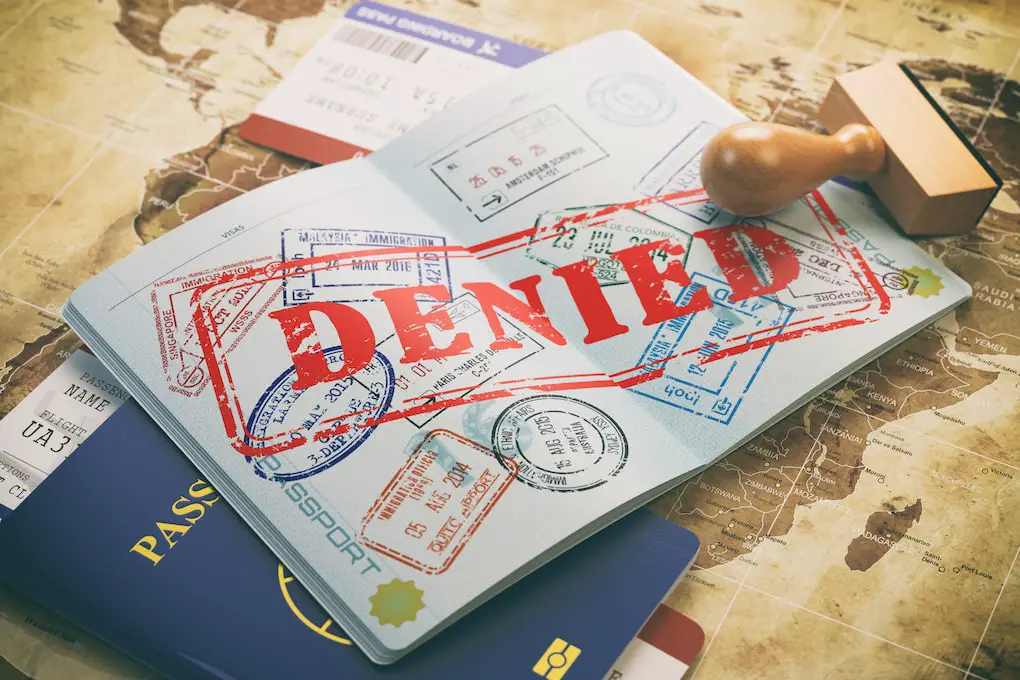
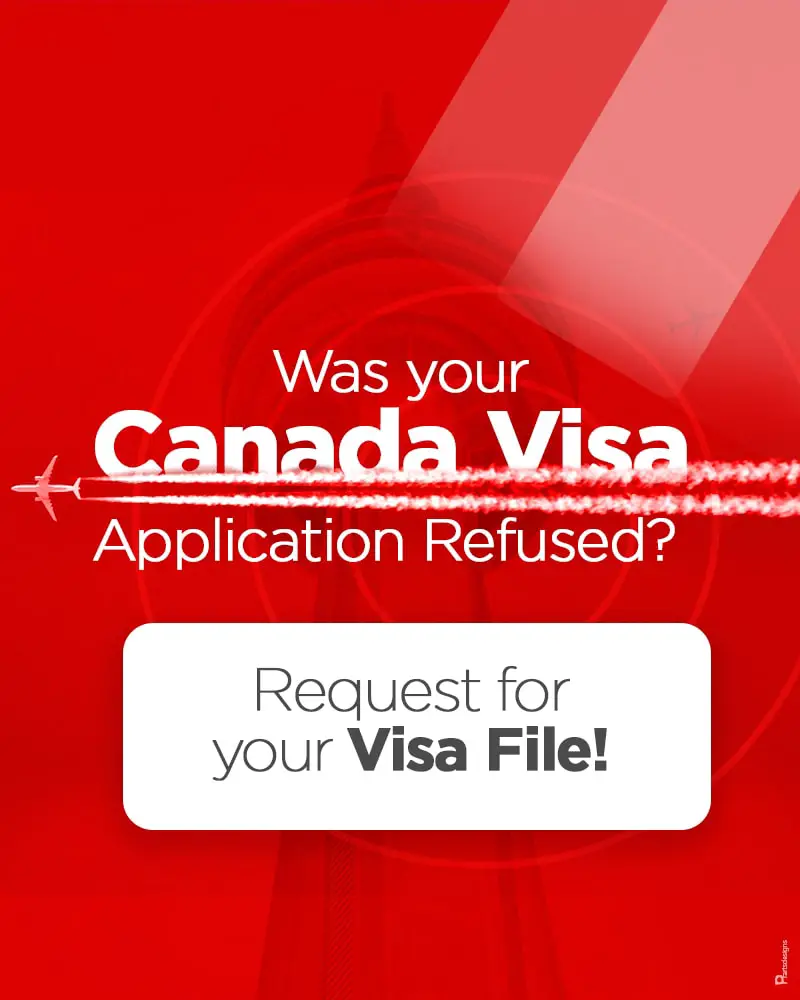
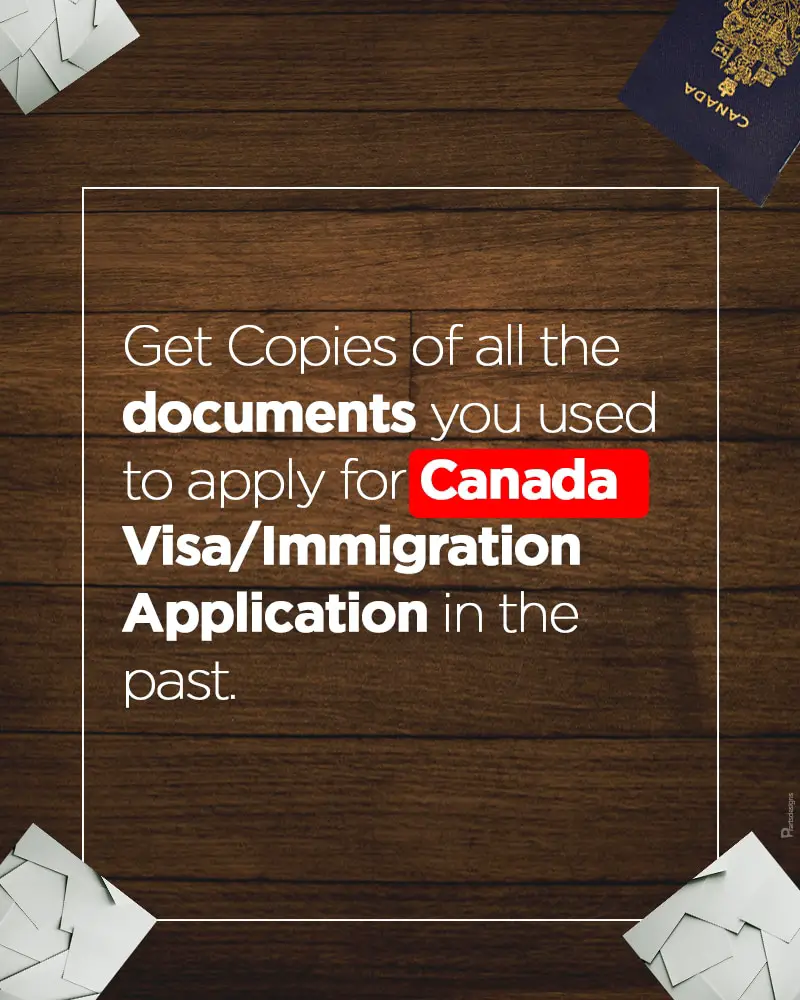
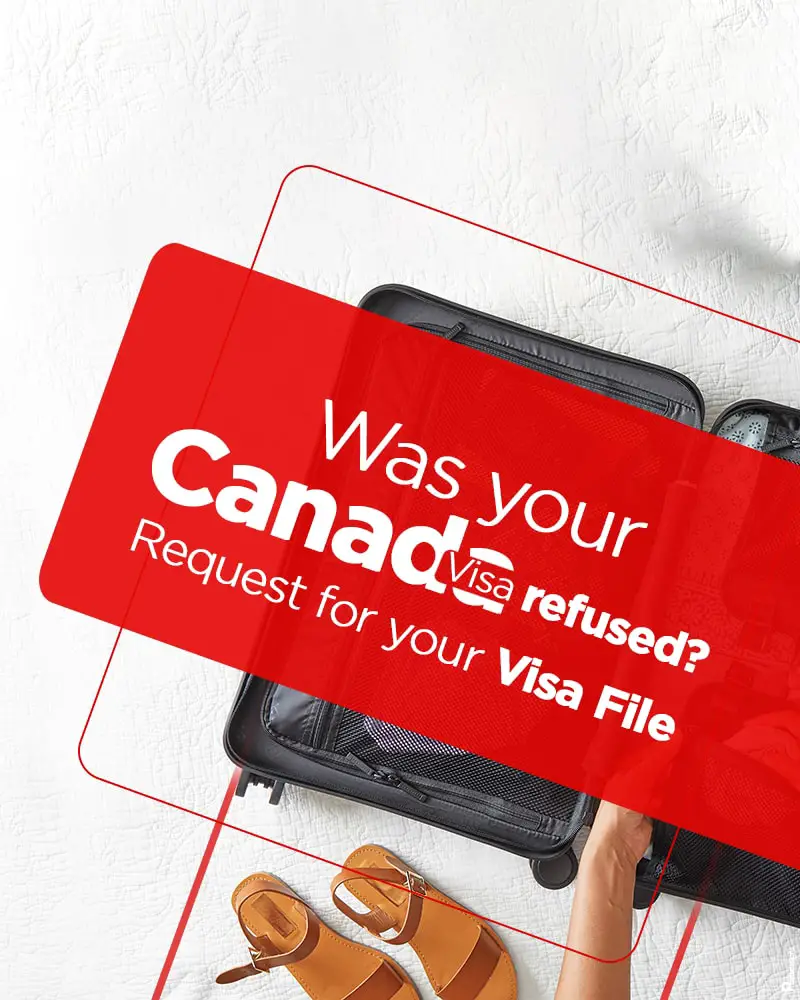
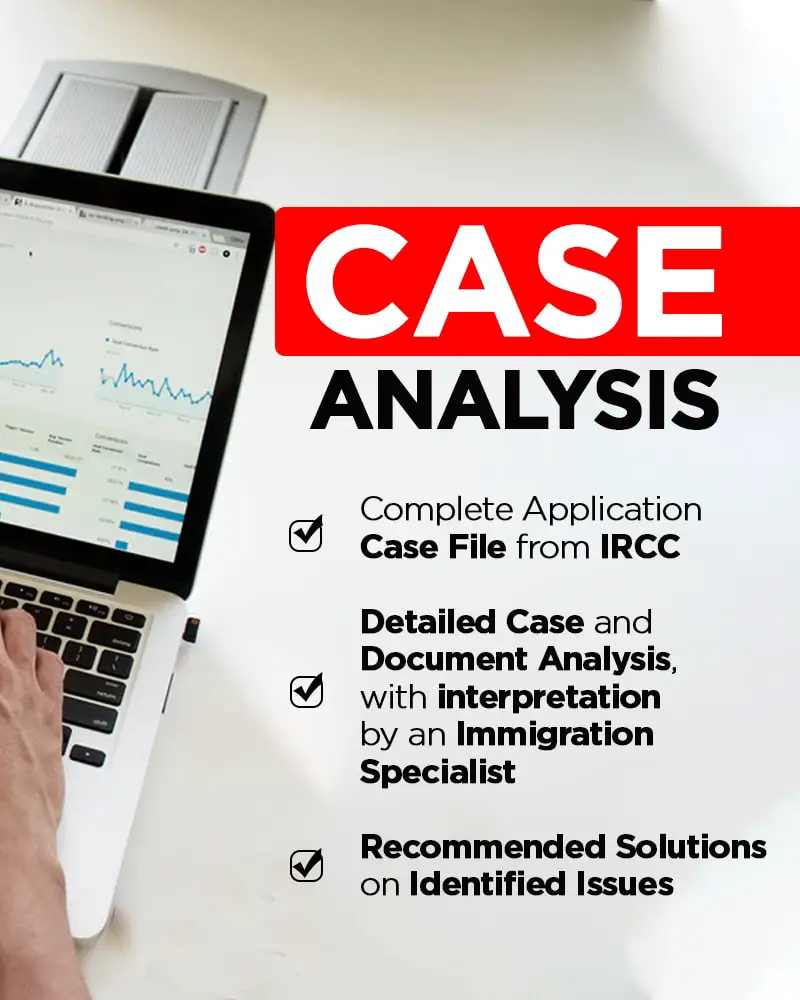
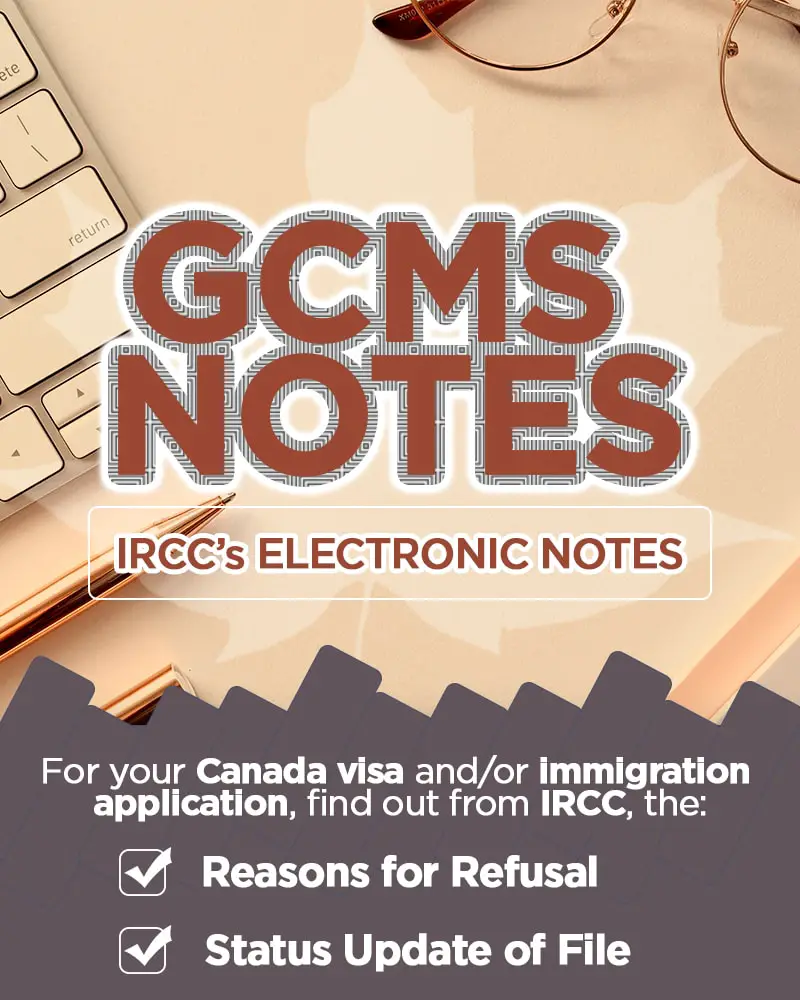
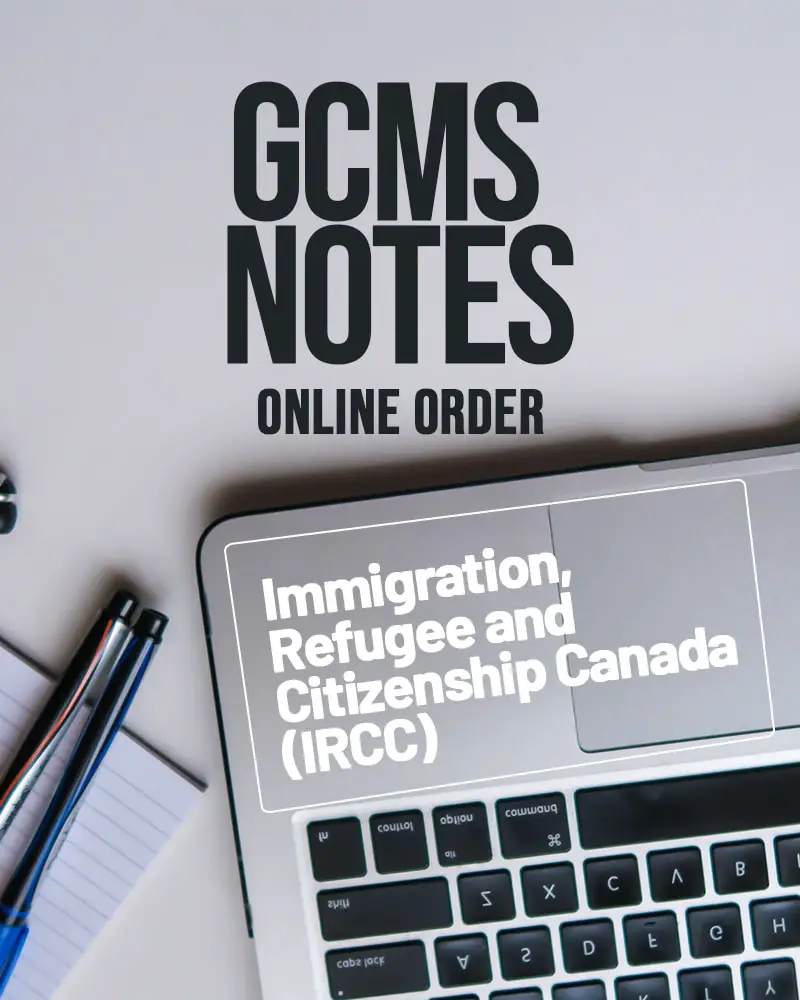



Super helpful! Thanks for this detailed guide on how to navigate the visa permit refusal process.
Louisa,
Thanks for your feedback. We are glad you found this comprehensive guide on Canada study permit/visa refusal reasons helpful.
Please what are the disease that can cause refusal.
And if there is a record of proof that the disease was managed well and the progress is OK , can the person application still refused ?